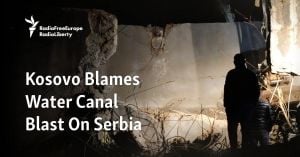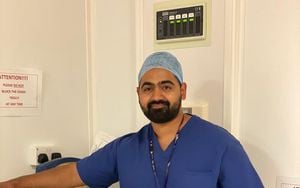After nearly three decades of intrigue, speculation, and heartbreak, renewed efforts to solve the murder of six-year-old JonBenét Ramsey have brought little-known suspects back to the spotlight—thanks, in part, to the recent Netflix documentary, Cold Case: Who Killed JonBenét Ramsey? Released on November 25, 2024, this three-part series directed by Joe Berlinger aims to shine light on the many mistakes made by investigators over the years and the damaging misconceptions surrounding the Ramsey family.
JonBenét Ramsey’s tragic story began on Christmas Day, December 25, 1996, when she was reported missing from her family’s home in Boulder, Colorado. A ransom note was found, but hours later, her body was discovered in the basement of her home, having been murdered through asphyxiation related to strangulation and blunt force trauma. The brutal circumstances surrounding her death, combined with her status as a child beauty pageant contestant, turned the case not just local but national, drawing intense media scrutiny.
Over the years, the focus of the investigation shifted several times, with moments of public outrage aimed at JonBenét’s parents, John and Patsy Ramsey, as well as her brother, Burke. The documentary insists on setting the record straight: it emphasizes the shortcomings of the original investigation, including how police seemed to get sidetracked by confirmation bias, instead of following more plausible leads. Evidence, including DNA found on JonBenét’s clothing, suggested the involvement of someone outside the family, but inappropriate priorities led to sweeping accusations against JonBenét’s parents.
Since the documentary aired, new attention has been drawn to several potential suspects previously linked to the case, including Gary Oliva, Randall Simons, and John Mark Karr. Gary Oliva, noted for past sexual offenses, had previously admitted to hurting JonBenét over the phone to friends, but he has never been proven to match the DNA evidence found at the crime scene. His criminal history and proximity to Boulder became fodder for speculation, though he remains uncharged.
Another suspect, Randall Simons, caught the eye of investigators due to his close ties to local beauty pageants. With his history of indecent exposure and subsequent arrest for child pornography, Simons’ involvement adds another layer of grim suspicion. Although his DNA did not match, his past raises considerable eyebrows.
Perhaps the most infamous potential perpetrator is John Mark Karr, who claimed through various communications to have killed JonBenét and ambiguously mentioned details about her childhood. His assertions led to significant media attention and police inquiry, but DNA testing excluded him as the killer. Despite his false confession being widely dismissed, Karr remains emblematic of the confusion and complexity surrounding this case.
Just as interest surged with the documentary's release, so too did members of law enforcement express renewed hope for solving the case. Investigators from the Boulder Police Department have been quiet yet optimistic, with one officer noting, “It feels like it’s within reach. We’re hoping for 2025; this is our year.”
Chief Steve Redfearn, who officially took over the Boulder PD earlier this year, reiterated his commitment to exhausting every lead, indicating he’s allocating more resources to resolve this enduring enigma. “We f–ked the case up from the start,” Redfearn has stated, acknowledging the mistakes of the past and the importance of taking new steps forward.
Redfearn made it clear, “The killing of JonBenét was an unspeakable crime, and this tragedy has never left our hearts.” The case is viewed as a stain on the department, and there is now increased pressure to bring it to closure. Investigators continue to review and evaluate recommendations from forensic scientists, highlighting the importance of the latest DNA technology, which has been critically integrated within new investigative practices.
While many of the previously considered suspects remain unproven, the continuing advancements in DNA sampling and genealogy testing shed new light on the potential for identification through familial connections, similar to techniques used effectively in other cold cases recently.
The show writers have insisted not just on exposing past errors but also on opening the door for renewed investigative consideration. John Ramsey himself inserted his voice and persistent quest for closure, urging the use of fresh investigative methods to finally unearth the elusive truth. “We want those items sampled. We want what has been sampled to be retested.”
Authorities assert they need to be vigilant with evidence as they pursue leads, keeping the details of the investigation guarded for future prosecution. The recent surge of media attention, particularly encompassing the Netflix documentary, could prove advantageous, creating new pressure and potentially new leads.
JonBenét’s family has remained steadfastly supportive of using modern methods to seek answers, with John Ramsey highlighting the importance of public databases for tracing family lineage through DNA samples. He pointedly remarked, “That’s been used very successfully within the last few years by police departments.” Further combinations of law enforcement cooperation and modern technology are pivotal to how this case could evolve.
Notably, the Ramsey family, historically maligned since the crime, have emerged from the shadows of vicious speculation, with the documentary allowing them to reclaim their narrative. Director Joe Berlinger addressed the spread of unfounded rumors implying Burke's guilt or involvement, labeling them as ludicrous and destructive. “If you go down the Reddit rabbit hole... it’s just ludicrous,” he said, reinforcing the importance of trust and accuracy over sensational theories.
Both the documentary and the active investigations highlight the collective yearning for resolution, keeping JonBenét's memory alive. Her story is not just another unsolved mystery; it embodies the nagging question of justice and accountability.
Although the case remains open, the recently renewed efforts and technology-driven approaches could finally lead authorities down the path to resolution. With the eyes of America watching, law enforcement are now not only focused on unearthing the truth behind JonBenét's tragic end but also seeking justice for her family who has cried out for answers for decades.



